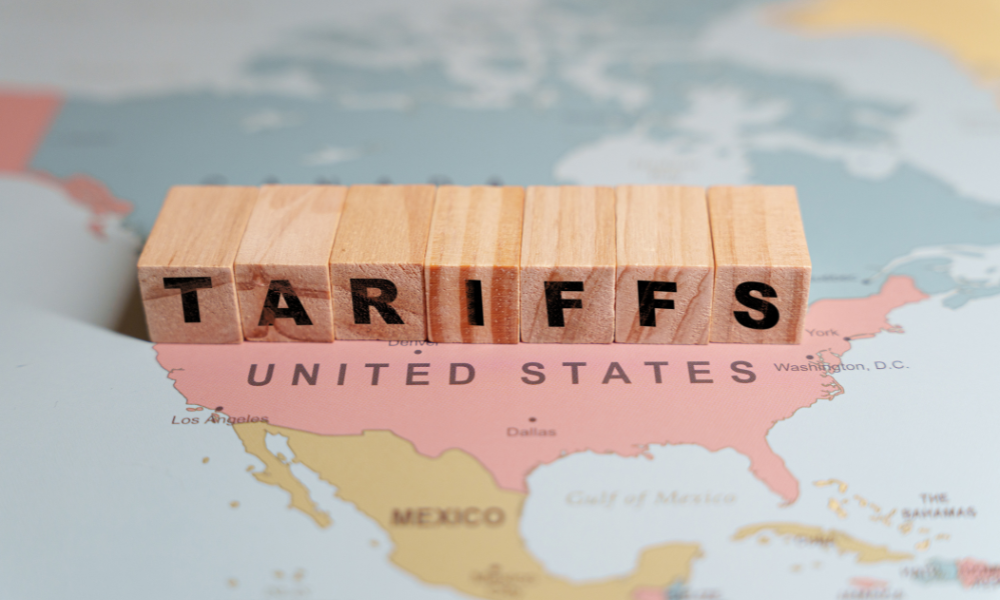

As some of the world’s largest companies report earnings, one topic is dominating the conversation: tariffs.
The topic has come up about 700 times during quarterly earnings calls for S&P 500 companies — a grouping of the world’s largest publicly traded businesses — according to a Bloomberg News analysis of transcripts. That’s an all-time high in data going back to 2005 and slightly above the number seen in 2018, when President Donald Trump first enacted tariffs.
The White House is moving forward with an aggressive protectionist policy that includes 10% tariffs on all goods from China. Trump also plans to soon follow up with levies on aluminum and steel, as well as 25% duties on imports from Mexico and Canada — the nation’s two largest trading partners.
It’s been hard for businesses to dodge tariff-related questions from analysts this earnings season, but many have so far downplayed the impact.
“We went through tariffs in the first President Trump administration,” Donald Allan, chief executive officer for Stanley Black & Decker Inc., said on a Feb. 5 earnings call. “We figured out how to navigate it back then. And we’ve built some muscle.”
Some have been more blunt in their assessments. Shoe retailer Steven Madden Ltd. plans to raise prices this year. Kontoor Brands Inc. — maker of the Lee and Wrangler jeans — is mulling doing the same. Others including Chinese fast-fashion giant Shein are adjusting their supply chains to mitigate some of the impact.
“We are cautious on our outlook for 2025 as we face meaningful near-term headwinds,” Steve Madden CEO Edward Rosenfeld said on the company’s earnings call Wednesday. “Most notably, our earnings will be negatively impacted by new tariffs on goods imported into the United States and by our efforts to aggressively diversify production out of China.”
It’s not only on Wall Street that tariffs have been top of mind. Gauges of consumer sentiment have dipped this month in large part due to expectations that Trump’s levies will translate into higher prices. Long-term inflation views now stand at the highest level in almost 30 years, data from the University of Michigan showed last week.
“The consumer right now is confused,” Kontoor CEO Scott Baxter said during the company’s quarterly call with analysts Tuesday. “If you just put yourself in their seat, they’re worried about work. They’re worried about the businesses that they’re in. Are those going to be impacted by some of the layoffs, the tariffs, the current situation right now?”

Focus is reportedly on a three year period from 2021-2024.

But economists say inflation impact may come in lower than expected.

How fast-growing tech means higher bills for millions of Americans.

The firm is extending the use of tools to help boost productivity.

Older couples are more likely to split than in the past, stats show.
Orion's Tom Wilson on delivering coordinated, high-touch service in a world where returns alone no longer set you apart.
Barely a decade old, registered index-linked annuities have quickly surged in popularity, thanks to their unique blend of protection and growth potential—an appealing option for investors looking to chart a steadier course through today's choppy market waters, says Myles Lambert, Brighthouse Financial.
